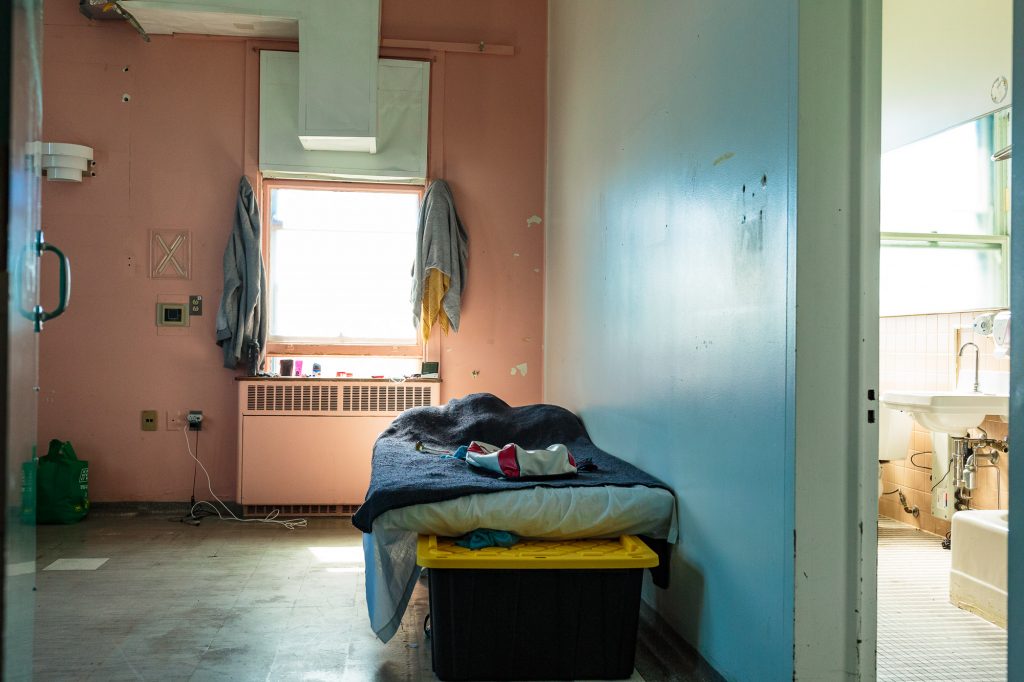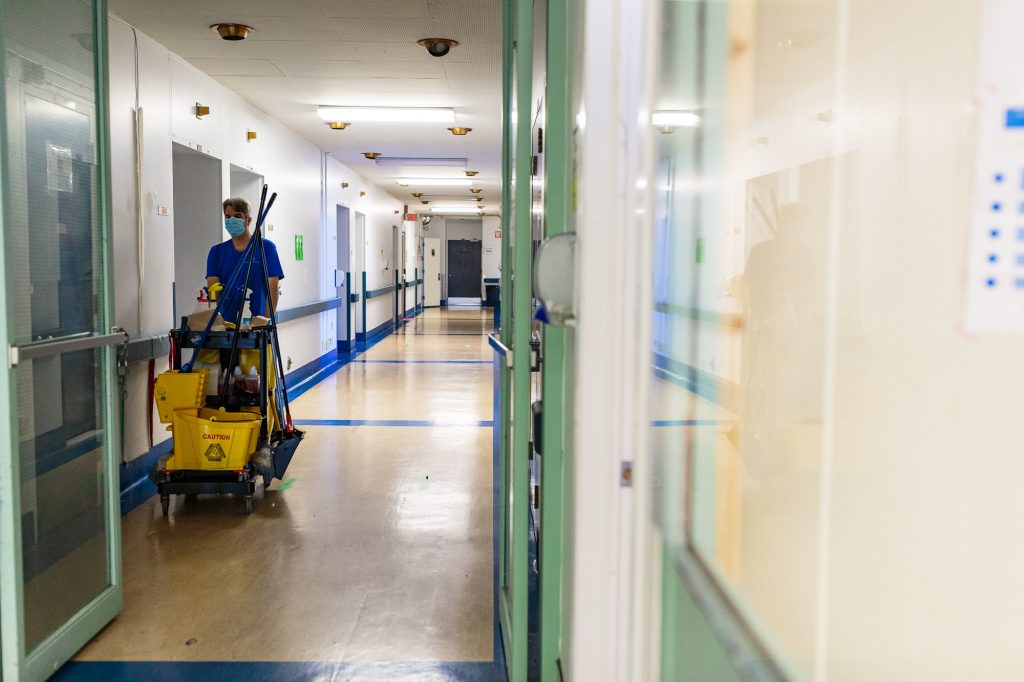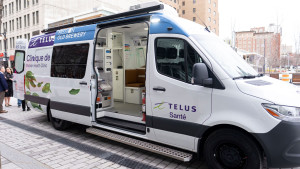
COVID-19 outbreak in Indigenous homeless population: Homeless-serving organizations and Public Health mobilize to respond
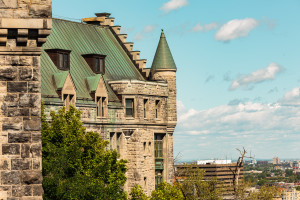
In collaboration with Projets Autochtones du Québec (PAQ) and the Montreal Indigenous Community NETWORK, we’ve marshalled our resources to respond to a major COVID-19 outbreak among chronically homeless Indigenous people, with the support of the CIUSSS du Centre-Sud-de-l’île-de-Montréal (CCSMTL). The situation is critical: the positivity rate among homeless Indigenous people who have recently been tested for COVID is approximately 80%.
Solutions have been quickly put in place. Together, we’ve coordinated the creation of an easily accessible red zone at the former Royal Victoria Hospital. The available supports include a managed alcohol consumption service supervised by the Old Brewery Mission in partnership with PAQ, medical staff from several public health institutions in Montreal, and the CISSS de la Montérégie-Ouest.
“As soon as the scope of the outbreak became clear, solidarity with and within the Indigenous community quickly emerged,” says Heather Johnston, Executive Director of Projets Autochtones du Québec. “We have seen Indigenous individuals and organizations provide human and physical resources; partners such as the Old Brewery Mission have offered secure facilities; the public health care system provided clinical services tailored to the needs, particularly for community members with alcohol dependence problems. Within a few days, we opened an isolation zone suited to the needs of Indigenous people and staffed by familiar faces. It’s amazing what we can do when we work together!”
Our President and CEO, James Hughes, says concerted, coordinated action is needed to address the complex challenges of homelessness among extremely vulnerable populations: “The Old Brewery Mission has much to learn from organizations like PAQ and the NETWORK when it comes to meeting the unique needs of homeless Indigenous people. We all want the same thing: to provide a welcoming environment where people can feel safe, find some stability, and start imagining a better life off the street.”
Overview of enhanced homelessness services at the former Royal Victoria Hospital:
- A total of 87 places adapted to the varied needs of homeless men and women
- 61 places in the red zone for homeless people who have tested positive for COVID, including 30 places that will be redesigned to meet the needs of people with alcohol dependence problems
- 12 places in the orange zone for people awaiting test results
- 14 places in the yellow zone for people who need to isolate following close contact
- Teams of workers from the Old Brewery Mission and a new PAQ team hired specifically to support Indigenous people
- On-site nursing and medical support provided by the public health system
- Psychological and social support, meals and activities for residents
- Knowledge-sharing and training opportunities for workers in the field
The initiative also has the support of partners who are sharing their expertise at this critical time and educating staff about Indigenous realities, including an official from Indigenous Services Canada and the coordinator of the Indigenous Support Workers Project.
Émilie Fortier, Director of Services at the Old Brewery Mission’s Saint-Laurent Campus, is supervising the frontline staff at the former Royal Victoria Hospital: “The situation is changing fast and it’s very demanding for the teams on the ground. Combining our expertise with that of PAQ and the NETWORK will increase our ability to serve homeless Indigenous people. The support of the CCSMTL’s mental health and addiction programs team and their regional homelessness service, and of the Direction régionale de santé publique de Montréal, has been invaluable. Everyone is doing their part and putting their hearts into it.”
Increased need for affordable housing
PAQ and the Old Brewery Mission agree that these emergency measures are necessary but not a long-term solution. The two organizations are calling on all levels of government to step up and implement a plan to increase the stock of affordable permanent housing in Montreal by the spring of 2021. It is estimated that a minimum of 3,000 units are needed in Montreal to house people who are homeless.
Support our emergency services to help keep homeless Montrealers safe.
DonateDernières nouvelles
-
 The Old Brewery Mission Mobile Health Clinic, powered by TELUS Health, celebrates its first birthday
The Old Brewery Mission Mobile Health Clinic, powered by TELUS Health, celebrates its first birthday -
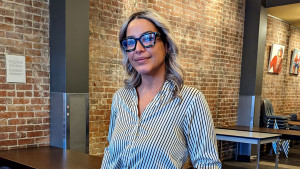 Meet Mila Alexova, Coordinator of Outreach Services
Meet Mila Alexova, Coordinator of Outreach Services -
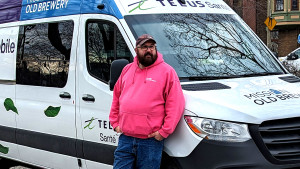 Meet Nicholas Singcaster, psychosocial counsellor at the mobile clinic
Meet Nicholas Singcaster, psychosocial counsellor at the mobile clinic -
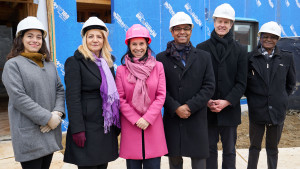 i
iLaurence Lavigne, Mayor of Villeray-Saint-Michel-Parc-Extension, Patricia Lattanzio, MNA for Saint-Léonard-Saint-Michel, Valérie Plante, Mayor of Ville de Montréal, Lionel Carmant, Minister responsible for Social Services, James Hughes, President and CEO of the Old Brewery Mission, and Ernst Weche, Director of the LOGIS-RAP Board of Directors. Photo credit: Ville de Montréal - Sylvain Légaré.
New housing project in Villeray-Saint-Michel-Parc-Extension -
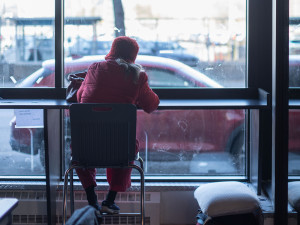 Report: Resting in the warmth while waiting for a roof
Report: Resting in the warmth while waiting for a roof - See all news
